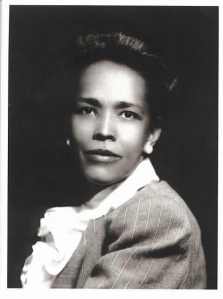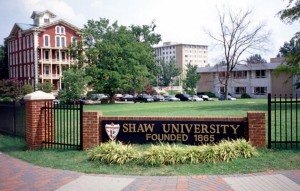The Roots of Social Activism: Ella’s Early Life
Ella Josephine Baker was born in 1903 to Blake Baker, a steamship waiter, and Georgianna Baker, a schoolteacher, as the second of three children. She grew up in Littleton, North Carolina.1 All four of Ella’s grandparents had been slaves; she was raised listening to stories about slave revolts and her grandmother’s own insurgency and defiance. Ella attributed the development of her sense for social justice from the influence of her grandparents.2
Church played a central role in Ella’s young life. Her grandfather Ross Baker was a Baptist minister, and she grew up in the church, as the rest of her family did. In her own words, Ella described her upbringing in the Baptist church as “important for [developing] the sense of the value of the human being.” 3
Ella’s mother Georgianna Baker also served as an important influence. Ella accredits her mother with teaching her how to articulate herself and how to read before she had even started school. Ella called her mother very smart and “a bit aggressive”, and she served as a role model for guiding women and men within their Baptist church community.4
Education at Shaw: Learning to Challenge Authority
In 1918, Ella’s mother sent her to attended the high school branch of Shaw University, the oldest historical black college in the South, located in Raleigh, North Carolina. Ella continued college there, studied sociology and graduated as the university valedictorian in 1927. Ella further developed her sense for defiance at Shaw, and challenged unfair school policies and authorities.1 As Ella explained, “I didn’t break rules, but I challenged rules. And I didn’t have sense enough not to do the speaking, even to groups that were older than I.”5 Even as a young adult, Ella’s gift for public speaking was apparent. Professor Benjamin Frawley, a mentor of Ella’s, told her to not let anyone try to teach her public speaking, because it might spoil her.6
Sources for this page:


